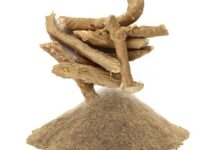Gopichandanadi Gulika for Epilepsy: How this ancient Ayurvedic remedy can help?
Epilepsy is a neurological disorder that affects people of all ages. It occurs due to recurrent seizures caused by abnormal electrical activity in the brain. While there is no cure for epilepsy, there are treatments that can help control seizures. One such treatment is Gopichandanadi gulika, a herbal remedy made from ayurvedic components. This blog post will discuss how Gopichandanadi gulika for epilepsy works.
Let’s get started.
The major causes of Epilepsy

There are many different causes of epilepsy, but the most common cause is unknown. The major causes of Epilepsy includes genetic predisposition or an acquired brain injury. Other possible causes include:
- Infections such as meningitis or encephalitis
- Traumatic brain injury
- Stroke
- Tumors
- Drug or alcohol abuse
- Genetic syndromes such as tuberous sclerosis
Genetics seems to play a major role in some cases of epilepsy. If you have epilepsy, there is about a 50% chance that someone else in your immediate family also has it. There are many different types of seizures, and they can vary in severity from person to person. Some people with epilepsy only have occasional seizures, while others have them frequently.
If you or someone you know has epilepsy, it is essential to seek medical help. Many resources are available to help people with epilepsy live normal, productive lives. With proper diagnosis and treatment, most people with epilepsy can lead full, active lives.
How does Gopichandanadi gulika for epilepsy work?

Gulika for epilepsy is an ayurvedic preparation that is famous for the treatment of seizures and epilepsy. The main ingredient in gopichandanadi gulika for epilepsy is gopi and Chandan, which are natural herbs with anticonvulsant properties. It is thought to work by reducing the activity of excitatory neurotransmitters in the brain, thereby preventing seizures.
Gulika for epilepsy is usually taken as a tablet once or twice daily. Some people may also require higher doses depending on the severity of their condition.
Natural Treatments for Epilepsy
Cannabis and CBD
Cannabis is effective in reducing seizures. Anecdotal reports suggest that it may also help people with epilepsy, though more research is needed. CBD, a compound found in cannabis, has also reduced seizures. Therefore, if you’re considering using cannabis or CBD for epilepsy, talk to your doctor first.
Ketogenic diet

The ketogenic diet is a high-fat, adequate-protein, low-carbohydrate diet which helps in the treatment for difficult-to-control (refractory) epilepsy in children. The diet forces the body to burn fats rather than carbohydrates. Normally, the carbohydrates in food gets converted into glucose, which is then transported around the body and is particularly important in fueling brain function.
Acupuncture
Acupuncture is a popular and effective treatment for epilepsy. It helps reduce seizure frequency and severity. Acupuncture works by stimulating the nervous system and releasing neurotransmitters that help to regulate mood and reduce stress. Although, acupuncture is a safe treatment option, but some risks come along with this procedure. Be sure to discuss these risks with your acupuncturist before beginning treatment.
The Bottom Line
If you are looking for an effective, all-natural treatment for epilepsy, gopichandanadi gulika may be a good option. If you consider using this treatment, be sure to talk to your doctor first to make sure it is right for you.
Frequently Asked Questions
Q1. What exactly is epilepsy?
A. Epilepsy is a chronic neurological disorder characterized by recurrent, unprovoked seizures.
Q2. What are the symptoms of epilepsy?
A. Symptoms of epilepsy include temporary confusion, stiff muscles, fear, and uncontrollable jerking of legs and arms.
Q3. Is gopichandanadi gulika for epilepsy safe?
A. Yes, gopichandanadi gulika is a safe medicine without any side effects.
Q4. Can you give gopichandanadi gulika to infants?
A. Yes, gopichandanadi gulika is a safe medicine for newborn babies to recover from common cold and fever.



